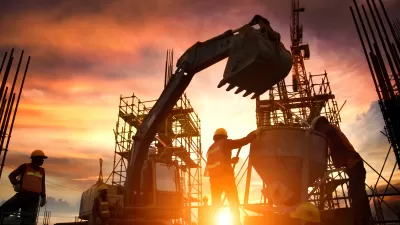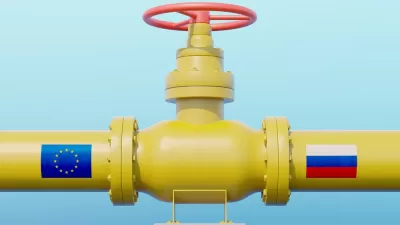A new report explains why the double whopper of declining property tax revenue and state aid to local governments is causing the worst municipal fiscal crisis in a generation, and may not get better any time soon, explains Nate Berg.
Outlined in a new report from the Pew Charitable Trusts' American Cities Project, hitting the 90,000 counties, cities and school districts in the U.S. for the first time since 1980, the double decline in taxes and aid coincides with an increased demand for public services due to the recession, making for an especially dire situation. According to Berg, "These two funding sources typically amount to more than half of city
revenues, and to have them both declining at the same time is like
taking a city's wallet and then punching it in the stomach."
Unfortunately the situation is likely to get worse before it gets better. "Because some cities
don't assess their property taxes annually, the negative impacts of the
housing market crash haven't been fully felt," notes Berg.
Stretching for a silver lining amongst the dark clouds of the recession, "the report notes that some local governments have been able
withstand the cuts in state aid and property tax revenue by investing in
new technologies or forming partnerships that allow them to maintain
levels of services at lower costs."
"That's one of the opportunities that can come out of this crisis, is
to find ways to either use technology or to partner with counties or
other local governments in the region to deliver services more
efficiently," says Robert Zahradnik, research director at the American Cities Project.
FULL STORY: Cities Facing Worst Fiscal Situation Since 1980

Alabama: Trump Terminates Settlements for Black Communities Harmed By Raw Sewage
Trump deemed the landmark civil rights agreement “illegal DEI and environmental justice policy.”

Planetizen Federal Action Tracker
A weekly monitor of how Trump’s orders and actions are impacting planners and planning in America.

The 120 Year Old Tiny Home Villages That Sheltered San Francisco’s Earthquake Refugees
More than a century ago, San Francisco mobilized to house thousands of residents displaced by the 1906 earthquake. Could their strategy offer a model for the present?

In Both Crashes and Crime, Public Transportation is Far Safer than Driving
Contrary to popular assumptions, public transportation has far lower crash and crime rates than automobile travel. For safer communities, improve and encourage transit travel.

Report: Zoning Reforms Should Complement Nashville’s Ambitious Transit Plan
Without reform, restrictive zoning codes will limit the impact of the city’s planned transit expansion and could exclude some of the residents who depend on transit the most.

Judge Orders Release of Frozen IRA, IIJA Funding
The decision is a victory for environmental groups who charged that freezing funds for critical infrastructure and disaster response programs caused “real and irreparable harm” to communities.
Urban Design for Planners 1: Software Tools
This six-course series explores essential urban design concepts using open source software and equips planners with the tools they need to participate fully in the urban design process.
Planning for Universal Design
Learn the tools for implementing Universal Design in planning regulations.
Clanton & Associates, Inc.
Jessamine County Fiscal Court
Institute for Housing and Urban Development Studies (IHS)
City of Grandview
Harvard GSD Executive Education
Toledo-Lucas County Plan Commissions
Salt Lake City
NYU Wagner Graduate School of Public Service





























